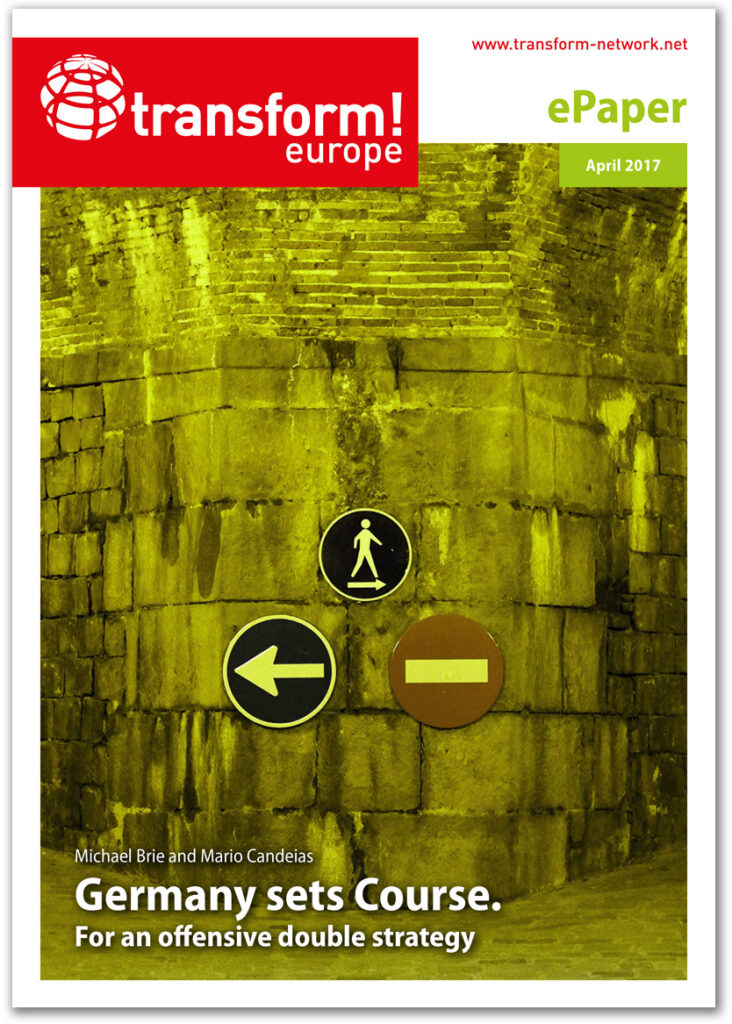This paper on German politics deals with several questions: What is the current situation? How to organize a so-called third pole, the political camp of solidarity? How to re-organize the left party and how to handle the question of a centre-left government?
The opening up with Martin Schulz is a chance and a danger at the same time: he brings back hope to a deeply frustrated party membership and mobilises a lot of people to join the SPD. The danger: Schulz is not a lefty like Corbyn or Sanders. With the Greens, the situation is dramatic in a different way when measured against the challenges of left politics. It turned out to be difficult for the Greens to keep both of its political options open: a “Black-Green” coalition with the conservatives (including the conservative’s right-wing populist faction, the CSU), or a red-red-green coalition together with the SPD and the Left Party – that would for the party and not least for its voters – place it under the test of being torn apart. Now confronted with bad polls, they are playing out the justice card, but with little credibility and two leaders identified with a green-liberal agenda.
The conditions for a left government do not exist at the moment. We have to develop them first. The removal of the barriers of dialogue between the SPD, the Greens, and the Left Party is an indispensable step forward. But what could emerge from the commonalities of these parties right now is nothing more than a centre-left government on the basis of the existing rules of tempered neoliberalism. Fulfilling the double task – further influencing state politics from the left and working towards a radical transformation – would not be possible in that arrangement. For this reason, in our view, the question of participation in a governing coalition by the Left Party on the federal basis is not on the agenda, but rather the struggle over a change in direction of politics through societal and parliamentary opposition, or – possibly – toleration of a middle-left government.
And possibly on the way of re-organizing the conditions for an effective left government in Germany may rise, carried forward by society and social movements together. Then on the basis of effective social forces, a division of the ruling elite might emerge, and powerful left actors could possibly establish a firmly left government in the power centre of the European Union, and the approach that was developed before could be comprehensively implemented.
Please find the pdf for download on the left.
